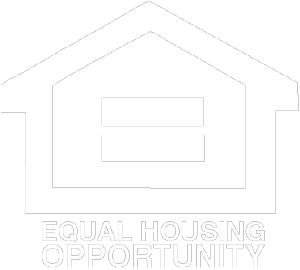
Mortgage Options Explained
Mortgage Options
When choosing your ideal home mortgage, you should understand the basic elements that make up the home loan and how you can qualify.
"Loan Type – Rates – Terms – Payment Amounts"
Common Mortgage Loan Types
Mortgage loans consist of FHA, VA, Conventional, and Private Investor Loans. Depending on the type of loan, the amount of the loan can determine which loan is best for you.
Federal Housing Administration (FHA) Loans
Qualifying for an FHA loan can be one of the easiest, although there are limitations in the size of the loan. An FHA offers a low-down payment and credit score requirements. FHA loans are offered through various approved lenders. These loans are insured by the Federal Housing Administration to protect lenders against loss from homeowner default on the mortgage loan. See FHA Loans
Conventional Loans
A conventional loan is any mortgage loan that is not offered or secured by a government entity. Conventional loans are available through private lenders like Banks, Credit Unions, and Mortgage Companies or two government-sponsored enterprises (GSE), the Federal National Mortgage Association (Fannie Mae) and the Federal Home Loan Mortgage Corporation (Freddie Mac). The Conventional loan could be a little harder to qualify for, but they could cost less over the Government Insured loans like FHA because you could avoid paying Private Mortgage Insurance if your down payment is 20% or more. See Conventional Loans
VA Loans
VA loans (Department of Veterans Affairs) are available to existing military and veterans through their eligibility benefits. This loan is ideal for veterans because it offers a no down payment or required mortgage insurance home loan. The government doesn´t make loans mortgage lenders do, The Department of Veterans Affairs provides a partial guaranty, basically a form of insurance for each loan. See VA Loans
Jumbo Loans
Jumbo loans are mortgage loans that exceed the conventional loan limits. If your loan amount exceeds $453,100.00, this is the best option to qualify for. See Jumbo Loans
Types of Mortgage Rates
Mortgage rates are defined by two types, Fixed Rates and Adjustable Rates.
Fixed Rates
Fixed-rate loans will stay the same over the life of the loan and will keep your mortgage payment amount consistent month to month. Offers you the best option to budget your finances without the worry of increasing mortgage rates over time.
Adjustable Rates
Adjustable-rate loans typically remain the same for the first 5, 7, or 10 years of the loan term. Then the rate is adjusted up or down based on market conditions once a year. An Adjustable-rate loan offers you the opportunity to start your mortgage with the lowest rate offered in today’s market and maybe the right choice if your plans of ownership are expected to change before the first-rate adjustment or refinancing is in your best interest. See Adjustable rate loans
Mortgage Term
The mortgage term is the length of time of a loan. Most Fixed Rate mortgage loans are for 15 or 30 years. Adjustable-Rate mortgage loans typically are for 30 years.
Understanding the Benefits of choosing the right Mortgage Term for you.
A longer-term loan like a 30-year mortgage will, in most cases, keep your monthly payments lower and keep you more flexible with additional funds for other expenses.
A shorter-term loan like a 15-year mortgage will save you in your overall interest you pay. By paying less interest, you can build equity faster in your home. An excellent choice if your finances and income can afford a larger mortgage payment.
Understanding the Monthly Mortgage Payment
Your monthly mortgage payment primarily consists of three parts – Principal repayment – Interest accrued - Taxes and Insurance. Typically, all three combined as a monthly payment amount. Note: For Interest Only loans, there is no Principal repayment in your regular monthly payment.
Principal Repayment
The principal portion of your payment is applied to balance of the loan. Over the life of your loan, this portion will increase in what is applied to your balance. This increase means your payoff will be less and thus increase your Equity in your property.
Interest
Interest is the cost of borrowing money and is calculated on the balance of your loan. This amount will decrease over the life of your loan based on the principal balance you have. The interest payment is Tax Deductible.
Taxes and Insurance
If required to have an escrow account to pay for Property Taxes, Homeowner Association fees, or Homeowners Insurance premiums. This portion will be included with your payment. An Escrow Account is a special account that the lender will use to hold the money required to pay for property taxes and homeowner insurance. Often this is adjusted on an annual basis.

